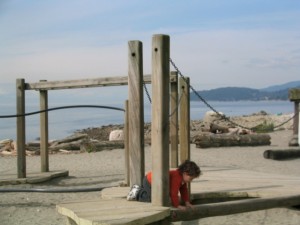Posts Tagged ‘questions’
An Announcement in Two Parts – Part 1: Not This Time
Three years ago, I put my name forward as a candidate in the 2011 municipal elections. I ran for the position of Trustee on the West Vancouver Board of Education and was honoured when voters in this community elected me to serve in that capacity.
My foray into electioneering also marked my social media debut outside the comfort zone of Facebook.
I dove into Twitter, a platform with which I’ve become very comfortable and which is now a part of how I absorb, consume, and contribute to media on a daily basis. It has also allowed me to create an invaluable network of connections.
After a long time of saying, “I would like to start a blog,” the election also spurred me to start one which I called The Comfort of Why. The best explanation for this title can be found in the speech I made at the first all-candidates’ meeting in 2011 where I said:
I take great comfort in the question why. As long as I’m asking why, I’m thinking, I’m reflecting, I’m challenging. I am looking for answers rather than assuming I have all the answers. I’m seeking information rather than dictating the way that things ought to be perceived.
To me, this questioning is not about undermining a system and disregarding the work that’s been done. It’s about validating what you believe, being responsive and strategic — making changes when they’re needed, when they’re necessary, and making them at the right time.
My first blog entry was posted on October 19, 2011, and it was comprised almost entirely of questions including this one:
Consider, too, that the BC Ministry of Education is pushing the concept of “personalized learning in the 21st century”. Why? What does it mean?
My position at the time, in regard to this particular question, was as follows:
Well, I want to be at the table to make sure that if there’s an overhaul of the system it’s done well and it’s done right. That it’s implemented in a way which benefits all students.
After three years of being at the table, I still feel this is a valid question and one that is not being addressed at a provincial level.
I still want to have this conversation. In fact, I feel we must have this conversation if we are to continue to offer our children the best opportunities to learn, to grow, and to find their way in the world.
While I recognize the valuable work that our Board has done in the past three years, in collaboration with the District Leadership Team, our education partners, our educators, and all our employees, I will not be seeking reelection in 2014.
Why?
There are a number of factors, but let me focus on three key points.
First, West Vancouver is a community with such depth of talent and with many actively engaged residents who are passionate about education. The deadline for nominations is tomorrow and already seven candidates have filed their papers which means we will have a dynamic and substantive campaign featuring a diverse range of opinions from individuals who all have much to offer.
Second, the most recent job action was very instructive and there are many lessons to be learned in how it played out. One of the most significant learning outcomes for me was to recognize that in order to move the provincial government into action on education, we need much greater direct engagement from the public. That citizens’ voice has to be galvanized if we want to ensure that education is a prominent, if not THE, election issue in 2017.
Finally, education in British Columbia has become such a polarized — and polarizing issue — that what we don’t talk about is education. This discussion — the conversation I’ve always said I wanted to see happen — has been drowned out by criticisms and accusations, by duelling press conferences and media soundbites, by job actions and political posturing.
It’s time that we, as citizens and voters, speak up and get what we want for our children, our society, and our future.
I have some ideas on how we might do just that.
Watch for Part 2.
Pick One, Settle, And Let’s Get Schools Open
I would rather be writing about a resolution to the current labour dispute in public education.
Instead I’m left to speculate on why, with the many alternatives available, there is no settlement between the two parties after approximately 18 months of bargaining. I would simply like them to agree on one resolution mechanism and to move towards a deal rather than perpetuating this untenable situation.
Why?
Because while there are many improvements required to ensure the future health and vitality of the public education system in BC, this dispute is doing harm with every day that passes. It is damaging working relationships, it is negating the brand of public education which may drive parents into the private system, it is denying gainful employment to teachers and others, it is affecting families, it is compromising the year for students, and it is potentially setting the stage to keep education in the courtrooms and not the classrooms for years to come.
As I’ve done in previous articles, I’d like to note that any errors of fact in the following discussion are my own as are the views expressed here: these are not the views of the West Vancouver Board of Education. I’d also like to clearly acknowledge that this is not a legal opinion.
So what are the options available to the BC Public Schools Employers’ Association (BCPSEA) and the BC Teachers’ Federation (BCTF) to pursue a settlement? There may be many more, but I would like to focus on four which have been a feature of the on-going public dialogue, whether in the media, online, or in conversation. These are a negotiated settlement, mediation, binding arbitration, and the appointment of an industrial inquiry commissioner.
Negotiated Settlement
I’ve publicly stated that in my opinion a negotiated settlement would be the best outcome for the public education system in BC.
I remember hearing Dr. Charles Jago on CBC radio a few months ago. He was the mediator who helped arrange the last settlement between BCPSEA and the BCTF. In the interview, he said that the key to achieving a negotiated settlement is to find one area where the two parties seem to have a common interest and to build from that base of consensus. In the deal he mediated, that base of consensus was an incredibly narrow plank which had to do with one benefits issue. It may have been narrow, but it was enough to get the process in motion.
One would like to think that the public education system itself represented a common base of interest, but the challenge is that the two negotiating parties in this dispute, BCPSEA and the BCTF, seem to interpret public education in very different ways.
Given the current status of the relationship between the two sides, let alone the history and the legacy of a litigious nature now seemingly endemic in the system, the likelihood of a negotiated settlement seems remote. If so, what are the prospects of success with the remaining three options I’ve identified?
Mediation
Both parties have expressed interest in mediation as a means by which to resolve the dispute and it is a viable option. I’d like to suggest that in the absence of a negotiated settlement, a mediated settlement would likely be the next best approach for the parties to resolve this crisis.
Although BCPSEA and BCTF have supported the notion of mediation, based on the evidence of the revolving door of possible mediators there is cause for concern regarding the viability of this option.
Facilitator Mark Brown, who had been an observer at the bargaining table from very early on, bowed out of the process when the BCTF issued a public call for Vince Ready to become involved. Brown took this, rightly, as an expression of non-confidence and graciously stepped aside. At first Vince Ready, after reviewing the position of each side, declined to take the task on as did Justice Stephen Kelleher. Subsequently, and which perhaps we misinterpreted as a sign that the parties had moved in any substantive way, Vince Ready agreed to a weekend of exploratory talks to determine if the time had come for mediation.
It’s important to explain here that a mediator’s role is not to negotiate for either party in a dispute. The mediator’s skill is his/her ability to pull, push, and prod both parties to help them overcome the gap between their positions. In essence, the mediator is an advocate for the deal, not for one side nor for the other.
After the weekend of exploratory talks, Ready declared an impasse. That is, his evaluation of the willingness of the parties to “mind the gap” and to get to the other side led him to believe that mediation would not be successful. In his remarks, he identified wages and benefits as a continuing obstacle to an agreement as well as the larger issue, and perhaps the most contentious, around the language of contract provisions relating to class size and composition.
Since the shutdown of those talks, Mr. Ready has stepped back, but he has not entirely stepped away which means that mediation remains an option. However, mediation will not be the option for a resolution until such time as we see Mr. Ready call the two parties back together. Until he does that, we can rest assured that the two sides remain too far apart.
If mediation continues to be an option, but not a likely one at the moment, what are the remaining options for potentially securing a settlement?
Binding Arbitration
On Friday, the BCTF called for binding arbitration to help break through the impasse in bargaining.
Binding Arbitration is another accepted mechanism to help sort out contentious collective agreements where the bargaining process appears to have reached a stalemate. With binding arbitration, each side puts forward their “final” offer and the arbitrator — who is recognized as an independent third-party — fashions a collective agreement which they feel represents the best solution. It’s binding because both parties have to accept the arbitrator’s decision. It is essentially ceding control of the bargaining process.
The challenge with the way that the BCTF has structured this new proposal is that it is asking for arbitration on only a few issues and not on all the issues.
To put wages, benefits, and prep time forward for binding arbitration leaves out class size and composition. This would be a viable approach if the language around class size and composition had been agreed to and these other issues were the only outstanding ones. However, there is no agreement or understanding on the language around class size and composition.
The BCTF’s argument appears to be that these specific issues can be arbitrated while the issue of class size and composition is left to the courts to decide.
The problem is we don’t know when the courts will decide on class size and composition. The appeal of the most recent Griffin decision is not till mid-October, but we don’t know when the ruling will be made. There’s also the possibility that the case could go to the Supreme Court of Canada which would further extend the timeline for any certainty on this particular issue.
In the absence of this court certainty, the BCTF has proposed the establishment of an interim fund to address the issues of class size and composition. If the government were to agree to the terms of the interim fund, then perhaps the other items could go to arbitration. But, this too is complicated because if the government agrees to the terms of the interim fund and if the courts are to decide on class size and composition, then there needs to be a mechanism by which the parties can reenter into collective bargaining once the court decision has been made.
Another complicating factor is the government’s reluctance to engage in binding arbitration because of its experience with arbitration during the 2002 dispute with BC’s doctors. You can find out more about this in Columnist Vaughn Palmer’s recent Vancouver Sun article.
While the opinion of some may be that the government can and should pay whatever it takes, there has to be some acknowledgement that the government is also required to take financial implications into consideration. We may not want money to be a deciding factor when it comes to funding public education, but I don’t think it’s fair to deny the importance of public finances either nor the multi-faceted obligations of the government to all taxpayers.
The government knows that binding arbitration would likely result in a higher financial settlement than they may want to consider. The BCTF hasn’t included class size and composition in its proposal for arbitration, partly because of the court case, but also because it could risk getting less that it is seeking.
That’s not to say, despite the government’s disavowal of binding arbitration, that this isn’t still a viable option. However, it would depend on the parties being able to agree on an acceptable framework for arbitration — something that offered each side enough comfort to allow them to cede control over the outcome.
If not mediation and if not arbitration, are there any other options left for the two to consider?
Industrial Inquiry Commissioner
I don’t know enough about what’s involved with appointing an Industrial Inquiry Commissioner, but I know it’s an approach which the Vancouver School Board has promoted and I’ve also seen it promoted on social media.
As I understand it, an Industrial Inquiry Commissioner is an independent third-party much like an arbitrator. He/she would talk to both sides and investigate the impasse they’ve come to in collective bargaining. The outcome of this investigation would be a report which would identify why the parties have failed to arrive at a settlement and the report would also contain non-binding recommendations.
I asked on Twitter last night why this would work if the recommendations were non-binding. The feedback I received was that given what the process entailed, it would create a situation where the parties would be compelled to resolve their differences based on the framework provided by the Commissioner.
It sounds like a very viable approach and the question then becomes why is this not the option that’s being pursued most actively by BCPSEA and the BCTF given the roadblocks which seem to hamper the other options we’ve discussed?
I’m not sure, but I would hazard a guess that both parties would be reluctant to face up to what the report may reveal with regard to bargaining strategies and proposals. There is also a risk involved, as with binding arbitration, of setting in motion a mechanism which entails ceding control of the outcomes and being spurred into pursuing a particular course of action.
These are the four options which I’ve seen put forward most often as ways in which this dispute could be settled and which would get teachers back to work and students back in school. If none of these options is pursued successfully, then we may see legislation to end the dispute and I believe that will be the worst possible outcome for the public education system.
Having discussed these four options and knowing that none of them appears to have led towards a solution, I’m left with one key question for each of the two parties.
My question to BCPSEA is this: after approximately 18 months of bargaining, just exactly how much money is the government prepared to put into the Learning Improvement Fund and how much money is it willing to put forward to address grievances arising from the Griffin decision in order to settle this dispute?
My question to the BCTF is this: apart from the government “giving in” by writing a cheque for the full value of the TF bargaining proposals as they currently stand, what is the way out of this current labour dispute?
My parting thought to both BCPSEA and the BCTF is this: there are many options — four that I’ve outlined in this article alone — which may help to resolve the labour dispute.
Please just pick one.
Make it work and get a deal done.
Open schools and let kids get back to learning.
From Job Action To Job Action To … ?
When I chose to run as a candidate in the 2011 municipal elections, the K-12 public education system in British Columbia was embroiled in job action.
Almost three years later, the public education system in British Columbia is once again contending with a job action which many are calling the worst ever for the sheer rancour of the debate, the barbed rhetoric which abounds, and the crumbling relationships.
In other words, my entire term as a Trustee on the West Vancouver Board of Education has been characterized by the lurch from one job action to another.
While bargaining has chewed away at my time as a Trustee, it’s insatiable appetite has also served as an obstacle to discussions and innovations on a number of educational topics.
Why?
Because if you’re consistently caught up in trying to clean up the mess your guests have made with the appetizers, you’ll never have the chance to sit down with your company to enjoy the main course.
If our focus is concentrated on bargaining issues, what are we not talking about? Here’s a short-list of “big picture” items which I feel are overshadowed by the labour situation whether at a local level or provincially (in alphabetical order):
Accountability
- which Ministry reports are essential and which ones aren’t?
- is there a way to simplify school district financial reporting to ensure better utilization of staff time and resources without sacrificing the integrity and thoroughness of the information required?
- aside from the issue of underfunding, is it time to review the current funding formula?
Assessment (I know much has been done in this area and some school districts have already begun experimenting with different approaches, but I’m afraid that work has been disrupted and the information won’t be available for sharing as best practices with others.)
- what should report cards look like at each level in the K-12 system?
- how do we continue to move forward on implementing models of formative assessment?
- is there a different way to organize credits at the high school level to enable a more flexible route to graduation rather than one based strictly on work in school or on a progression through grade levels?
Age Groupings
- is grouping students according to their age still the desired approach to education?
- how do we balance the advantages of early learning with the fact that for some students a later start into a formal school environment may be more desirable?
- do all students require a full five years of secondary education or should there be a fast-track option for some learners?
Calendar (some districts are already working with different calendars)
- do we have to start school in September and stop in June with the traditional breaks at the end of each calendar year, for spring break, and so on?
- are balanced calendar models more successful for students and their families?
- what are the logistical barriers to changing the calendar within a district? That is, does it work well to have one or more schools on a different calendar or does it work better to change all at once?
Community Links
- how do we break through the walls between our communities and our schools to improve and increase relevancy and connections?
- what sort of partnerships can we build with our community without compromising the integrity of our public education system?
- how do we draw on the expertise and skills of our community members to further enhance and support school learning and the work of our educators?
These are some topics I yearn to delve into along with other issues such as the new curriculum, pre-service requirements for future educators, and the structure of practicums for student teachers.
Oh, and what exactly is a teacher’s role and what do we even mean by education in today’s world?
And while I believe that a negotiated settlement is the best foundation from which we may be able to enter into a progressive and enlightening discussion on many of these issues, it makes me very sad to acknowledge that the time needed to repair relationships once a deal is signed means we may not have the time we need to talk about such things substantively let alone implement them before we’re at the bargaining table again!
In the meantime, school districts continue to strive to do the very best for the families of this province but if each electoral mandate continues to be a Ben Hur-like chariot race from one set of failed negotiations to another, we will — all of us — have failed in our duty to build a better world for our children.
It will be a collective failure of imagination.
Ruminating On Paths Taken And Not Taken
Today the BC Supreme Court released a decision which finds changes made to the collective agreement with teachers in British Columbia, specifically those around class size and composition, unconstitutional. In addition, the court awarded the British Columbia Teachers’ Federation (BCTF) $2 million in damages which the provincial government must now pay.
That’s what I should probably talk about today given my role in BC’s public education system, but there are too many unknowns at this point, including the government’s response, and I don’t have enough details for an informed comment.
Not that I have answers to the other topic which I’ve been pondering.
George Bernard Shaw famously said, “Youth is wasted on the young” and we often hear the phrase, “If I only knew then what I know now.”
In a similar vein, I’ve thought of this: there is no undo/redo.
Computer programs have undo/redo, commands that allow us to zip back and forth in our work or our game to the point before we made an error or made a choice which we no longer support or chose a path which has not led us to the desired outcome.
In life, however, there is no undo/redo. As much as people advocate for a philosophy of “no regrets” I think that’s simplistic and difficult to apply in our own lives.
Why?
Because if we are honest with ourselves, there are regrets. We recognize points along the way where we made choices which were not good ones or decisions which didn’t play out the way we hoped they might or where we passed up an opportunity which, with hindsight, we think may have worked out better although there’s never any guarantee it would have.
I also think the idea of living in the moment, while it has merits, is not the answer either because we are not creatures of the moment: we have a past that has shaped us and we have a future which beguiles us.
The question becomes how to reconcile ourselves with our choices and with their outcomes.
It’s difficult to do when we hit those bumps in the road where each and every decision is up for evaluation. Where the “what-if” game becomes the one haunting us in the present. Where our confidence and our understanding of who we are takes on the metaphorical aspect of a cannibal rat ghost ship.
And we’re lucky if we find our way before circumstances intervene to make a situation worse or to take the journey along life’s path out of our control.
And while there is no undo/redo, there is try which puts me at odds with Yoda, the Jedi Master in Star Wars. With deference to the green sage, sometimes all we can count on is try.
Because without try, there is no possibility of change.
And change, according to ancient philosophies, is the only constant.
Getting to Know Me and You
In a recent blog post, Chris Kennedy, Superintendent of Schools for West Vancouver, issued a challenge which involves providing 11 random facts about one’s self, answering 11 questions, and posing 11 questions for others to answer.
I don’t have an athlete’s competitive gene in the way Chris does, but I’m not one to pass up a challenge — particularly one which offers an easy way into kickstarting my blog for the year.
So here goes:
11 Facts About Me
- I’m the eldest child in my family and I use birth order psychology to rationalize my tendency to be bossy.
- Athletic competition is not my forte, but I was a competitive swimmer when I was younger.
- And while I may not be an athlete, my competitive instincts do tend to arise if faced with a New York Times crossword puzzle, a game of Trivial Pursuit, or any sort of game involving my five nephews.
- I was one of the original hosting staff hired for Expo 86 in Vancouver. I worked in the pre-fair period, first at the display pavilion conducting tours of the site model, and later at the Expo Centre which eventually became Science World.

- Although I did have that experience with Expo, I resigned my position before the Fair actually opened – not one of the best decisions I’ve ever made.
- I lived in Toronto from 1986 to 1992 and worked for a variety of companies including Addison Wesley Publishers, Canada Mortgage and Housing Corporation, and Rogers Cablesystems. I also obtained my MBA from the University of Toronto while there.
- During my time in Toronto, I took creative writing lessons through the Continuing Education department at the U of T. My instructor, for two terms, was Anne Michaels who subsequently found much acclaim with the publication of her novel Fugitive Pieces among other works.
- I still have the letter Ms. Michaels wrote to me at the end of one term (she wrote a letter for to each student) encouraging me to give myself the gift of time to write. I have to admit, I’ve never quite learned how to do so, but I still may.
- While working for CMHC, I was seconded to the G8 1988 Economic Summit and worked in the media centre. I think I may have caught a glimpse of Margaret Thatcher once from a very great distance!
- My return to Vancouver in 1992 was prompted by a number of factors, primarily the impending birth of my first nephew. That’s one of the best decisions I’ve ever made because it brought me back home and allowed me to play a bigger part in his life, and the lives of his brothers, than I may have been able to from far away.
- September 2014 will mark 40 years since my family moved to British Columbia and settled in West Vancouver.
Questions from Chris Kennedy:
- If you could only watch one television station what would it be? CBC Newsworld
- Looking back at your schooling, what was the silliest rule your school had? I don’t remember which is probably a clear indication that school rules aren’t as effective as we’d like them to be. Or it may only be evidence of my memory issues!
- Who is the greatest ever Canuck? I’m sure I’d answer this differently every day and we’re lucky to have so many choices. Today I’m going to pick Lester B. Pearson because I believe he was a man who had a vision of how Canada could operate on the world stage in a manner which promoted peace and reconciliation. Our political leadership now seems to have abdicated that position. [Editor’s Note: I realize now Chris meant the hockey team and not Canadians in general in which case I’ll say Trevor Linden although I was also a Harold Snepsts fan. Oh, and Kirk McLean.]
- What is the greatest rock group of the 1980s? Please see the note above re memory issues. I was a Fleetwood Mac enthusiast and also a fan of the Little River Band, but I think that may have been more reflective of the 1970s.
- What is something education related you have changed your opinion on over your career? Assessment although not necessarily academic honours and awards.
- What is the warmest place you have ever been — and how warm was it? China in July 2009. My eyeglasses would fog up as soon as a I stepped out of the hotel lobby and I remember being drenched in perspiration from morning to evening.
- Poorest fashion trend you have seen in schools in the last 10 years? Ugh to Uggs.
- What was more frustrating to deal with in your school — Pokemon cards or silly bands? Luckily my role precluded the need to deal with this issue.
- Describe your favourite high school teacher in four words. Miss Lysell: dramatist extraordinaire inspiring imaginations.
- What is the best reason to go on Facebook at least once a day? For a smile while refreshing connections with friends and family, near and far.
- If blogging was outlawed tomorrow — what would be your reaction? Phew!
11 Random Questions for You:
- When you think back to your time as an elementary and/or high school student, what’s the one thing you wish had been done differently?
- What’s your favourite movie and why?
- If you were asked for one piece of advice to offer a first year student at a post-secondary institution, what would it be?
- What was your favourite song of 2013 and why?
- Who would you say serves as the best role model for young people today?
- Think about the work you’re doing now. Is it part of a career you had planned on or are you doing something you had never thought of doing when you were younger?
- If you could pitch an idea for a television show, what would it be? (Credit for this question goes to my son!)
- On a sunny day, do you make every effort to get outside or do you sometimes prefer to stay at home?
- If you had to choose one animal to best describe who you are, what would it be? (I was once asked this question in a job interview!)
- What do you think is one thing we could do to encourage more young people to vote in municipal, provincial, and federal elections?
- What is one change you hope to make in 2014?
I Challenge the Following People to do their “Homework”:
As Chris did, I extend the challenge of this activity to the educational community in the West Vancouver School District including parents and students who write and maintain blogs. I’d also like to extend the challenge to Trustees throughout British Columbia. It’s an interesting way to allow our communities to get to know us just that little bit better beyond our role as advocates for the public education system.




